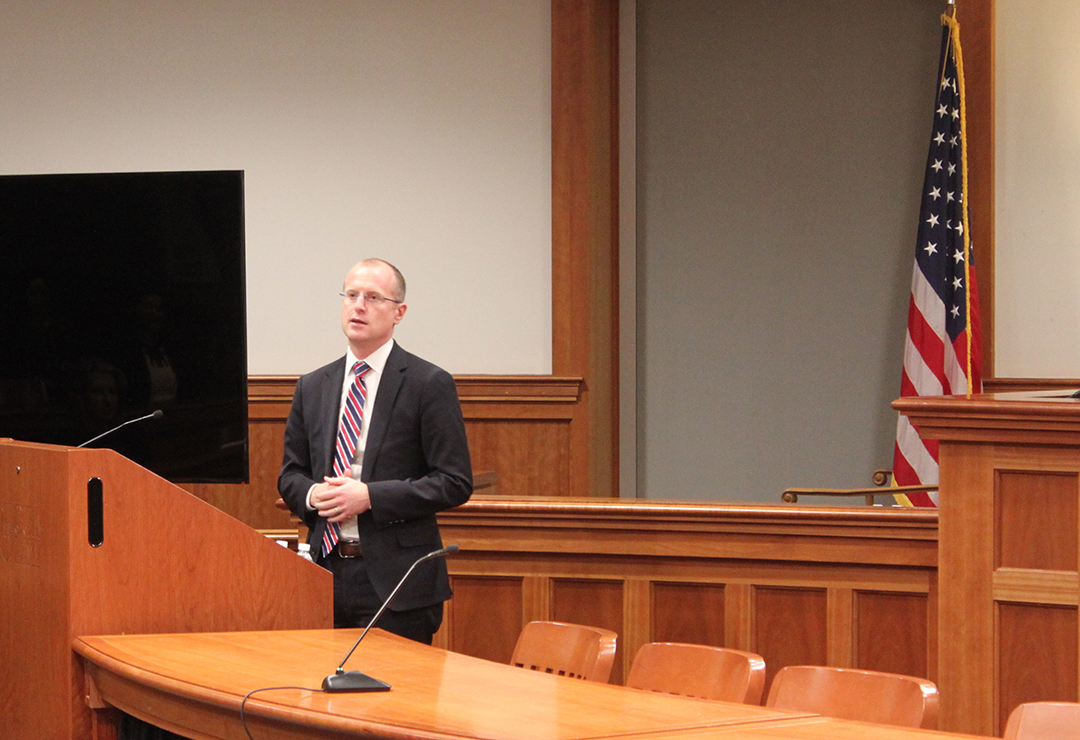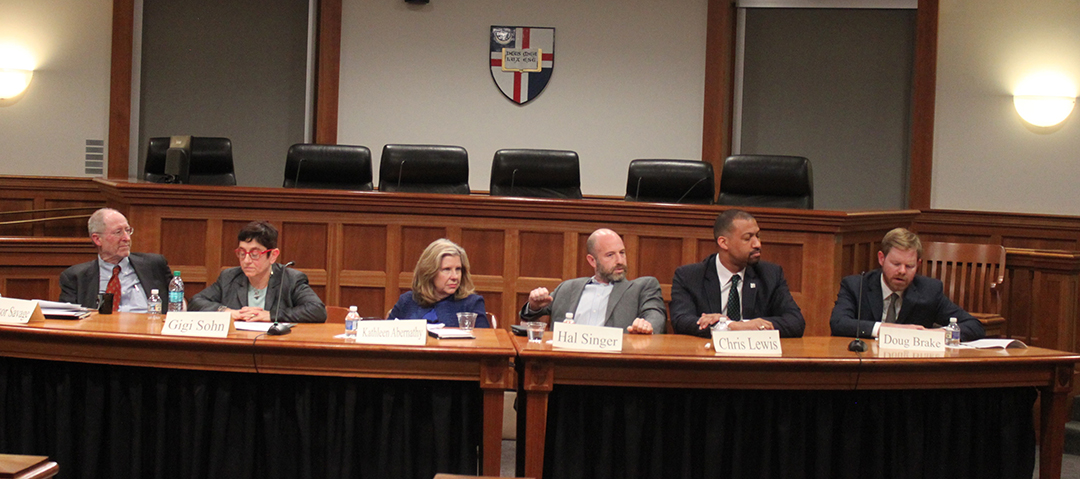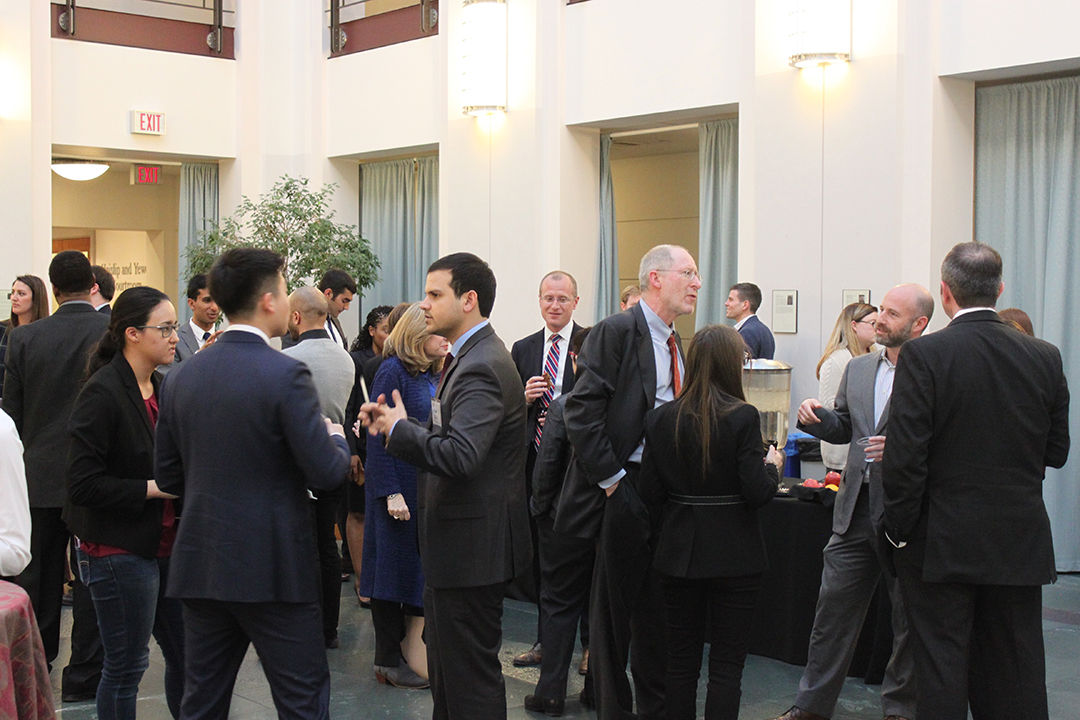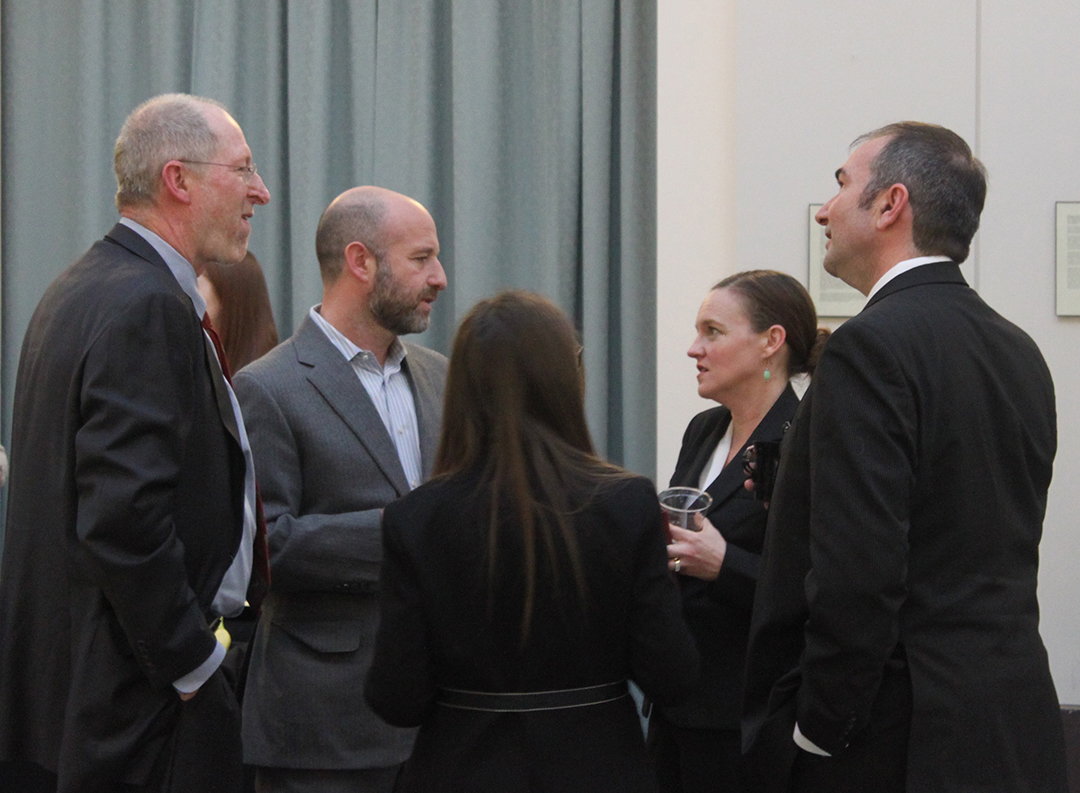
The Journal of Law and Technology's annual symposium, "Repeal of The Open Internet Order of 2015: A Discussion on a Dynamic Internet and the Legal Road Ahead," provided an opportunity for students, faculty, and practitioners to hear from experts about the positives and negatives of regulating broadband Internet service providers and the economic, social, and political effects of the new rules.
The March 16 event opened with introductory remarks by CUA Law Professor Elizabeth Winston. The program consisted of a panel discussion and a keynote speech from Commissioner of the Federal Communications Commission Brendan Carr '05.

Carr, who was nominated to serve as a Commissioner of the FCC and was confirmed unanimously by the United States Senate, discussed the 2015 FCC reinstitution of the Open Internet Order of 2010 which established rules against blocking, throttling, and paid prioritization. He also discussed the new rules the FCC proposed under the title "Restoring Internet Freedom" to amend the 2015 Open Internet rules.
"In my view, the 2015 decision broke from a 20 year bipartisan consensus that the internet should be allowed to flourish without unfettered regulation," Carr said.
Following Carr's discussion, the panel continued the debate surrounding regulation of the Internet. Specifically, they discussed the steps some states are taking to regulate where the Federal government has retreated, and whether such states have the legal authority to do so.

Panel Moderator: Chris Savage, Professor of Law, Columbus School of Law
Panelists: Kathleen Abernathy, Special Counsel, Wilkinson Baker Knauer, LLP; Doug Brake, Director, Telecom Policy, Information Technology and Innovation Foundation; Chris Lewis, Vice President, Public Knowledge; Hal Singer, Principal, Economists Incorporated; and Gigi Sohn, Distinguished Fellow, Georgetown Law Institute for Technology and Society
Following the panel discussion, Sarah Ensenat (3L), Editor-in-Chief of Catholic University Journal of Law and Technology, Vol. 26 provided closing remarks and thanked the audience, panelists, and University. The panelists and attendees then continued their discussion at a reception in the atrium.
This year, the Catholic University Journal of Law and Technology (JLT), formerly known as the CommLaw Conspectus: Journal of Communications Law and Technology Policy, vol. 1 (1993) -vol. 23, (2015) celebrated 25 years of publishing thoughtful, timely, and useful articles that discuss recent developments in communications law, information privacy law, and intellectual property law.


